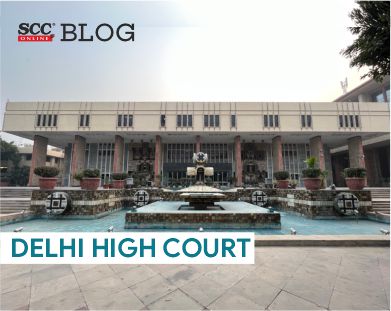Delhi High Court: The division bench of Vibhu Bakhru* and Amit Mahajan, J.J., while dealing with the civil writ petition, set aside the order passed by the Commissioner of Delhi (Goods and Service Tax) (‘Commissioner') as well as the Appellate Authority, whereby his goods were detained under Section 129(1) of the Goods and Services Tax Act, 2017 (‘GST Act') during transportation. An order raising demand of tax and penalty was also imposed on the petitioner.
The Petitioner's truck was intercepted by the GST Authorities in October 2020 which was detained on the ground that the documents found were defective. Subsequently, the petitioner was served with a show cause notice under Section 129(3) of the GST Act and order of demand of tax and penalty raising a demand of ₹2,78,129/- which was paid by the petitioner since he required the goods urgently. The Appellate Authority found the order passed by the Commissioner to be legally justified which required no interference.
The petitioner contended that an E-Way bill was generated for transporting the goods which duly recorded the movement of goods in question and also clearly mentioned the GSTIN.
The respondents denying the contention of the petitioners stated that the goods were not accompanied by an E-Way bill but with an invoice in the name of S.K. Integrated Consultants to whom the goods were sold. It was further contended that the demand of tax and penalty was a consent order and therefore, the GST Officer concerned was not required to give a detailed reason.
The Court not being in consonance with the respondent stated that the order of demand and penalty was not a consent order and the petitioner had paid the tax and penalty for release of the goods, therefore, the said payment could not be termed as voluntary.
The Court was of the view that neither the notice served upon the petitioner mentioned any specific defect found by the authorities nor the order of tax and demand specify any reason why the documents accompanying the goods were found to be defective.
The Court noted that that Appellate Authority in its order had stated that the Commissioner's order which had formed the basis for penalising the petitioner did not disclose the discrepancy between the E-Way Bills and the goods. Further, the respondents, only in their counter affidavit stated the fact that the goods were not accompanied by an E-Way bill, which found no mention in order of the demand.
Therefore, the Court while setting aside the order of the Commissioner as well as the Appellate Authority, held that neither the show cause notice nor the order of demand clearly set out the reason for imposing the tax liability and penalty. Accordingly, directed to issue a fresh show cause notice to pass appropriate order after affording a reasonable opportunity to the petitioner of being heard.
[Ram Prakash Chauhan v Commissioner of Delhi (Goods and Service Tax), 2023 SCC OnLine Del 285, decided on 19-01-2023]
Advocates who appeared in this case:
For the petitioner– Advocate Smriti Sinha, Advocate Satyam Thareja, Advocate Vasundhara Nagarath and Advocate Shriyanshi Pathak
For the respondent– Additional Standing Counsel Satyakam
*Order by Justice Vibhu Bakhru
*Simran Singh, Editorial Assistant has put together this brief.







